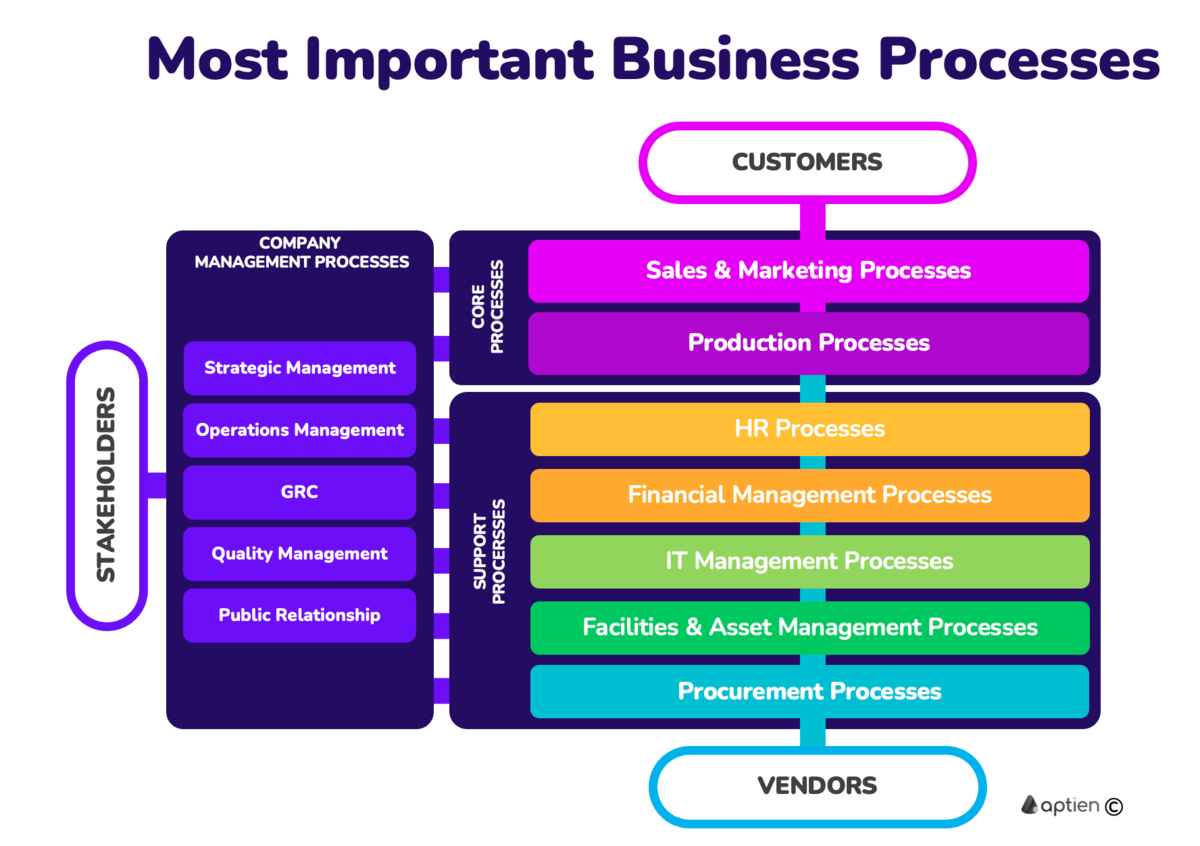In every business, numerous small tasks occur. Some employees focus on sales, others on production, customer service, or managing invoices. When a business has only ten employees, everything can be managed informally. However, as the business grows, operations become more complex. People may perform tasks their own way, training new hires becomes challenging, and errors or misunderstandings can easily happen.
This is where viewing the business through processes becomes beneficial—emphasizing the key areas that need oversight. You don't need to create complex flowcharts or master theories right away. It's sufficient to identify the processes most businesses have and gradually define and document them.
Based on our experience, these are the ten most crucial processes for Small and Medium-Sized Business (SMB)
- Sales and Marketing Processes
- Production Processes
- Customer Service Processes
- Customer Care Processes
- Human Resources Management Processes: focus on employee management from hiring to exit
- Financial Management Processes: primarily cover accounting and resource management
- IT and Information Management Processes: encompass all company IT operations
- Asset Management Processes: management of assets, facilities, equipment, and infrastructure
- Procurement and Supplier Relationship Processes
- Quality and Safety Management Processes
How to Easily Describe Processes?
You should capture and maintain processes in the simplest way possible to avoid bureaucracy. Use short steps or a checklist – who does what, when, and how. It doesn't have to be complicated, just a simple overview that everyone understands.
- You can best capture your processes in guidelines and work procedures
- Describing processes will help unify work procedures across the company
- Beware of unnecessary process diagrams that no one understands
Clearly assign responsible persons. A calendar, reminders, or software that automatically alerts you to duties and checks can help
How to Manage Processes in a Company?
- Business processes are essentially structured workflows that outline how tasks, activities, and roles interact to achieve company goals.
- Processes in companies are guided by policies and standard operating procedures (SOPs), which provide clear instructions on how tasks and activities should be performed.
- This ensures consistency, accountability, and efficiency throughout the organization.
- In other words, processes define how your business functions.
- Managing and improving these processes is key to reducing risks and achieving success.
- Check out the guide on how to manage processes in small and medium-sized businesses
Why Managing Business Processes Is Important
- Efficiency: Managed processes reduces errors and saves time.
- Risk Mitigation: Identifying bottlenecks or inefficiencies helps avoid potential pitfalls. Processes are sources of risks.
- Managing work and tasks: Well-defined processes can grow with the business.
